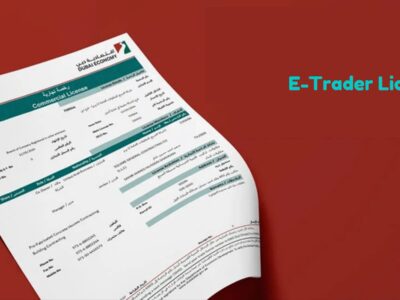Blockchain technology has emerged as a disruptive force with vast potential across various industries. In the context of marketplaces, blockchain offers exciting possibilities to revolutionize the way transactions are conducted, data is managed, and trust is established. This essay delves into four key aspects of exploring blockchain technology in the context of marketplaces, namely: transparency and trust, security and immutability, decentralized governance, and smart contracts.
Transparency and Trust
One of the fundamental strengths of blockchain technology lies in its ability to provide transparency and establish trust in marketplace transactions. Blockchain’s inherent transparency stems from its distributed ledger system, where transaction records are visible to all participants in the network. This transparency helps build trust among buyers and sellers, as it ensures that transaction histories can be verified and validated by multiple parties. By having access to transparent and immutable transaction data, users can gain confidence in the integrity of the marketplace, reducing the risk of fraudulent activities and enhancing overall trust in the platform.
Furthermore, blockchain technology enables the establishment of trust without relying on intermediaries. Traditionally, when we create a marketplace, we rely on central authorities to validate and facilitate transactions. However, blockchain eliminates the need for intermediaries by relying on consensus mechanisms and cryptographic algorithms to verify and validate transactions. This decentralized approach to trust-building allows for greater autonomy and control for users, as they can directly interact and transact with each other in a peer-to-peer manner. As a result, blockchain-based marketplaces can foster a sense of trust and transparency that is not reliant on a single entity, empowering users and creating a more equitable and inclusive marketplace environment.
Security and Immutability
Security and immutability are vital aspects of exploring blockchain technology in the context of marketplaces. Blockchain offers robust security features that enhance data protection and prevent unauthorized access. The decentralized nature of blockchain, with its distributed ledger system, makes it highly resistant to hacking and manipulation. Each transaction is encrypted and linked to the previous transaction, creating a chain of blocks that is difficult to tamper with. This ensures the integrity and security of marketplace data, reducing the risk of data breaches and fraud. By leveraging blockchain’s security features, marketplaces can provide users with a secure environment to transact and share sensitive information.
The immutability of blockchain data is another crucial factor in marketplace design. Once a transaction is recorded on the blockchain, it becomes virtually impossible to alter or delete. The cryptographic algorithms used in blockchain technology ensure that each block in the chain is linked to the previous block, creating a transparent and tamper-proof transaction history. This immutability ensures the integrity of marketplace records and prevents fraudulent activities, as any attempts to modify the data would require consensus from the majority of network participants. As a result, marketplaces built on blockchain technology can provide users with a higher level of trust and confidence in the authenticity and accuracy of transaction records, enhancing the overall security and reliability of the platform.
Decentralized Governance
Decentralized governance is a key aspect of exploring blockchain technology in the context of marketplaces. Traditionally, marketplaces have operated under centralized governance structures, where decision-making power and control reside with a single authority. However, blockchain introduces a paradigm shift by enabling decentralized governance models. In a blockchain-based marketplace, decision-making authority is distributed among network participants through consensus mechanisms. This approach empowers users, giving them a say in the governance of the platform and reducing the influence of intermediaries. Decentralized governance fosters transparency, fairness, and inclusivity, as decisions regarding platform rules, fees, and dispute resolutions are made collectively, taking into account the opinions and interests of all stakeholders.
The decentralized governance facilitated by blockchain technology eliminates the need for a central authority to govern the marketplace. Instead, rules and policies are enforced through smart contracts and consensus protocols. This democratic approach to governance ensures that decision-making is not concentrated in the hands of a few, mitigating the risks of biased or arbitrary actions. Furthermore, decentralized governance promotes accountability as all transactions and decisions are recorded on the blockchain, providing a transparent and auditable trail of actions. By embracing decentralized governance, marketplaces can create a more democratic and participatory environment, instilling trust and confidence in users, and fostering a sense of ownership and responsibility among all participants.
Smart Contracts
Smart contracts are a revolutionary aspect of exploring blockchain technology in the context of marketplaces. These self-executing agreements are programmed on the blockchain to automatically facilitate, verify, or enforce the terms of a contract without the need for intermediaries. In the context of marketplaces, smart contracts streamline and automate various processes, such as payment settlements, product deliveries, and dispute resolutions. By eliminating the need for manual intervention and relying on predefined conditions, smart contracts increase efficiency, reduce costs, and enhance the overall user experience.
The use of smart contracts in marketplaces brings numerous benefits. First, smart contracts ensure accuracy and transparency in transactions. The terms of the contract are programmed into the blockchain, and their execution is automatically triggered when the predetermined conditions are met. This removes the potential for human error or manipulation, as the execution is based on the predetermined logic of the contract. Additionally, smart contracts enhance transparency as all parties involved in the transaction can view and verify the terms and conditions of the agreement. This transparency promotes trust and reduces the risk of disputes, as the execution and outcomes of smart contracts are recorded and visible on the blockchain. Overall, smart contracts offer marketplaces a reliable and efficient way to facilitate transactions, ensuring secure and transparent agreements between buyers and sellers.
Conclusion
Blockchain technology presents an exciting frontier for marketplaces, offering unique solutions to long-standing challenges. By harnessing the transparency and trust, security and immutability, decentralized governance, and smart contracts provided by blockchain, marketplaces can unlock numerous benefits. From establishing a more transparent and secure environment to enhancing user control and automating processes, blockchain technology has the potential to reshape marketplaces and redefine the way buyers and sellers interact. As the adoption of blockchain continues to grow, marketplaces that embrace this technology will position themselves at the forefront of innovation, gaining a competitive edge in the rapidly evolving digital landscape.














Comments